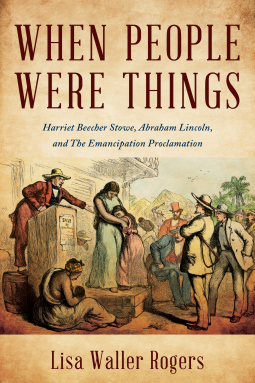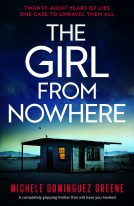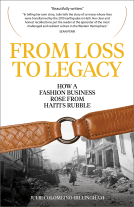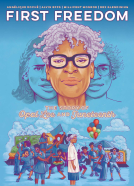
When People Were Things: Harriet Beecher Stowe, Abraham Lincoln, and the Emancipation Proclamation
by Lisa Waller Rogers
This title was previously available on NetGalley and is now archived.
Send NetGalley books directly to your Kindle or Kindle app
1
To read on a Kindle or Kindle app, please add kindle@netgalley.com as an approved email address to receive files in your Amazon account. Click here for step-by-step instructions.
2
Also find your Kindle email address within your Amazon account, and enter it here.
Pub Date 1 Sep 2025 | Archive Date 15 Nov 2025
Talking about this book? Use #BlackhistoryUSHistory19thCenturyUSCivilWarbiographiesofsocialactivistsabolitionistsantislaverymovement #NetGalley. More hashtag tips!
Description
During the three decades before the American Civil War, Southern slaveholders tried to end the anti-slavery movement. They exerted their influence by censoring the press and the mail, attacking and killing abolitionists, burning buildings, drafting frightening new laws and repealing others, and terrorizing and abducting Northern free Blacks. Northerners began to realize that the Slave Power would not rest until slavery was allowed to plant itself all over the nation; many stopped compromising and pushed back. This awakening was due to the efforts of visionaries who used the power of the pen, purse, pulpit, and press to expose the brutal injustices of slavery in an attempt to bring about the liberation of an enslaved people and restore the country to its original commitment of equality for all.
When People Were Things offers a humanizing lens of these disturbing times, portraying well-known Americans in new and surprising ways—activists that still inspire and energize us today—while not shying away from revealing a world often disturbed by Blackness. The book puts the lie to the argument that tries to portray America’s slave-owning past in any positive light whatsoever.
Advance Praise
When People Were Things: Harriet Beecher Stowe, Abraham Lincoln, and the Emancipation Proclamation
Publishers Weekly Review:
https://booklife.com/booklife-review/9798999409614
"This intimate epic surveys, with novelistic flair, the lives of men and women, free and enslaved, famous and forgotten, who dared to stand up against slavery in the United States in the years leading up to the Civil War, often at the risk of their own lives. In 100 brisk but rich chapters, Rogers strives to put readers into the shoes of her principal subjects, Harriet Beecher Stowe and Abraham Lincoln, but also a host of abolitionists, formerly enslaved people, and more, in the fractious years between Stowe’s birth in 1811 and Lincoln’s signing of the Emancipation Proclamation at the dawn of 1863—Stowe, Rogers notes with significant narrative and moral power, did not doubt that the president would measure up to his moment.
"Between those events, Rogers dramatizes key moments from myriad lives (among them Theodore Weld, Sojourner Truth, August Wattles, Charles Sumner, Marius Robinson, Paul Edmonson, Harriet Tubman, and many more). The storytelling is inviting and detailed, brought to life with judicious quotes and an eye toward still-pressing themes: mob violence, as decried by both young Lincoln and Stowe; the “revolutionary concept” that women “could change society”; the courage of abolitionist truth-tellers; the “monstrous moral wrong” of slavery; and a Southern-controlled Congress’s anti-democratic efforts to silence abolitionists.
"The subject matter is sweeping, the page count daunting, and the telling at times revelatory, especially when Rogers captures how life felt—and how her cast's convictions were sharpened—as the nation came to a fierce boil. At times, though, the novelistic approach works against narrative momentum and contextualization, with chapters and sections, especially in the first half, opening with breezily precise bits of declarative scene-setting about mundane happenings that readers must trust will eventually gain significance. The choice to weave in-depth biographical accounts of Stowe’s family and Lincoln’s marriage—while mostly leaving the content and wildly popular theatrical adaptations of Uncle Tom’s Cabin unexamined—leaves readers to seek that context elsewhere."
Takeaway: Intimate, epic history of Stowe, Lincoln, and the enslaved as the nation came to a boil.
Comparable Titles: Joan D. Hedrick’s Harriet Beecher Stowe: A Life, Stanley Harrold’s American Abolitionism.
Production grades
Cover: A
Design and typography: A
Illustrations: A
Editing: A-
Marketing copy: A
∞
Kirkus Reviews: (Our Verdict √ GET IT)
https://www.kirkusreviews.com/book-reviews/lisa-waller-rogers/when-people-were-things-harriet-beecher-stowe-abraham-lincoln-and-the-emancipation-proclamation/
"Rogers offers a scenic walk through a vivid, harrowing, and heartbreaking history of the abolitionist movement
"The author delivers exceptional research and fresh perspectives as she dives into the biographies of President Abraham Lincoln and author Harriet Beecher Stowe, as well as the greater history of the abolitionist movement, as they all relate to the creation and execution of the Emancipation Proclamation. It’s divided into eight chronological sections, from “Words (1775-1831)” to “Hope (1862-1863).” These are, in many ways, thematic phases, involving a list of individuals that’s quite extensive, but the author effectively shows how they all played key roles, including radical abolitionist John Brown, presidential candidate Stephen A. Douglas, activist and writer Frederick Douglass, journalist William Lloyd Garrison, public speakers Sarah and Angelina Grimké, social reformer Lucretia Mott, Secretary of State William Henry Seward, and formerly enslaved activists Sojourner Truth and Harriet Tubman. Their backgrounds and actions weave through major events that preceded the Civil War, which include the Panic of 1837, the Nat Turner rebellion, the Dred Scott vs.Sandford case, and the establishment of the Underground Railroad. Of course, the publication of Stowe’s novel Uncle Tom’s Cabin (1852) became an “abolitionist manifesto, exposing slavery for the cruel and unjust institution it was,” and, according to Lincoln, the main event that led to the Proclamation. Throughout all the various, detailed sections, the reader comes to understand how Lincoln was influenced by many others in his decision to champion the freeing of enslaved people, and they will gain a greater understanding of his declaration, on January 1, 1863, when he signed the Proclamation and stated, 'If my name ever goes into history, it will be for this act, and my whole soul is in it.'
"A raw and emotional look at the sacrifices made by those who gave all to end slavery."
∞
“In WHEN PEOPLE WERE THINGS, Lisa Waller Rogers gives us a magisterial treatment of the anti-slavery movement in America and its key players from roughly 1830 to the Emancipation Proclamation in 1863. The book is enlivened by descriptions of such bloody events as the slave insurrection led by Nat Turner, the murder spree of John Brown and his followers, and the brutal caning of Senator Charles Sumner on the Senate floor by a South Carolina congressman....Highly recommended.”
-John Oller, author of American Queen, The Rise and Fall of Kate Chase Sprague
"Readers may be surprised at how much humanity, wit and warmth runs through When People Were Things. Rogers’ vivid writing features real people who, whatever their failings and foibles, had moral courage and used it."
∞
-Nancy Koester, author of Harriet Beecher Stowe: A Spiritual Life, and We Will Be Free: The Life and Faith of Sojourner Truth.
∞
"Lisa Waller Rogers' storytelling brilliance lies in her ability to humanize historical figures as multidimensional individuals grappling with moral complexities, personal struggles, and the weight of their times....This is historical writing at its finest..."
-Emma Harris, 2024 Gilder Lehrman Maryland State American History Teacher of the Year
Marketing Plan
book available on Amazon, Ingram and any sites such as Walmart, Barnes and Noble, Kobo, Baker & Taylor, that use Ingram as its distributor or you can ask local bookstore to order for you. Librarians and history educators may be interested in reading. Available in ebook, paperback, and hardbound copies. Bookseller can return unsold books and receive the regular discount at Ingram.
Author, a history graduate from the University of Texas at Austin, has received awards and recognition for her five published books, and praise for her storytelling skills. She is a former educational consultant to educational publishers and a former classroom history teacher.
Available Editions
| EDITION | Paperback |
| ISBN | 9798999409614 |
| PRICE | |
| PAGES | 680 |
Links
Available on NetGalley
Average rating from 10 members
Readers who liked this book also liked:
Michele Dominguez Greene
General Fiction (Adult), Mystery & Thrillers, True Crime
Julie Colombino-Billingham
Biographies & Memoirs, Business, Leadership, Finance, Nonfiction (Adult)
Angélique Roché, Alvin Epps, Millicent Monroe and Bex Glendining
Biographies & Memoirs, Comics & Graphic Novels, Multicultural Interest
We Are Bookish
Literary Fiction, Multicultural Interest, Women's Fiction
We Are Bookish
General Fiction (Adult), Mystery & Thrillers, Sci Fi & Fantasy
We Are Bookish
Historical Fiction, Literary Fiction, Multicultural Interest
Stewart Buettner
General Fiction (Adult), Literary Fiction, Mystery & Thrillers


















